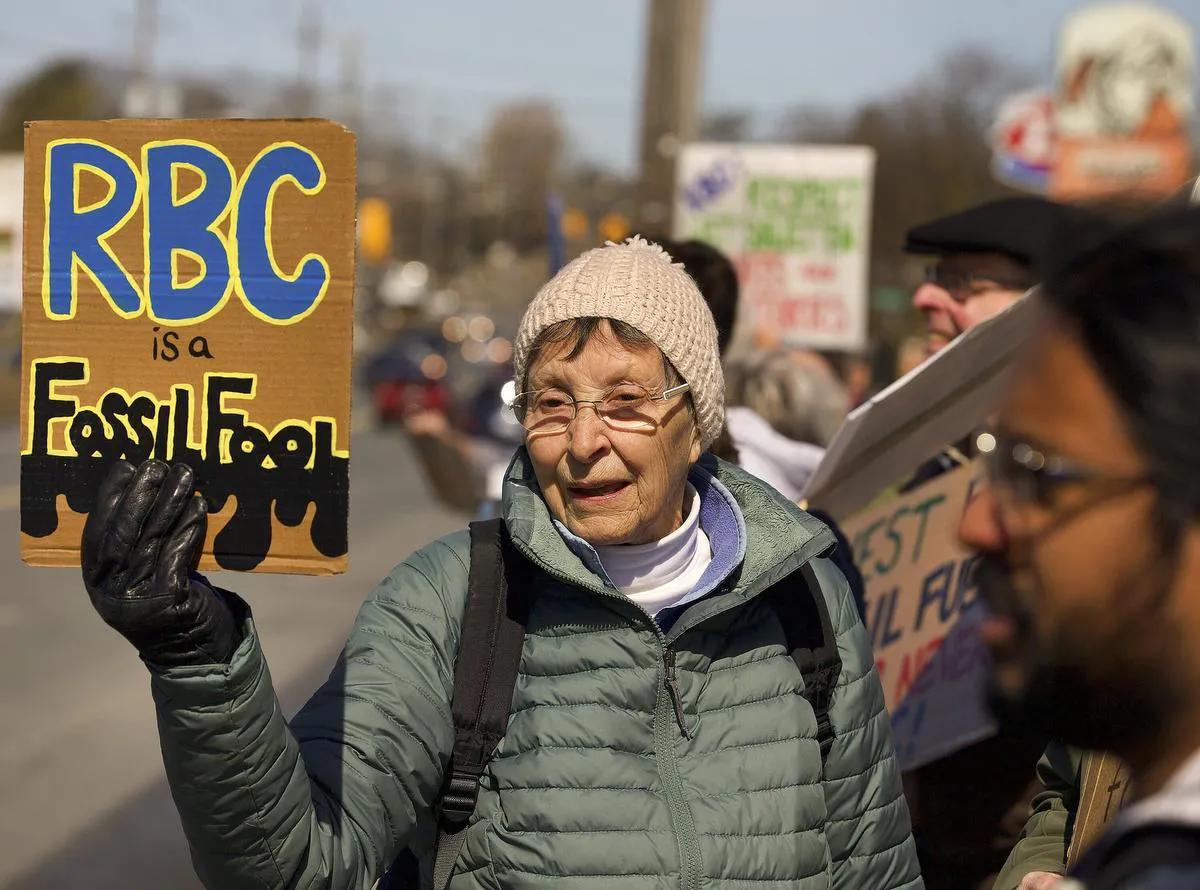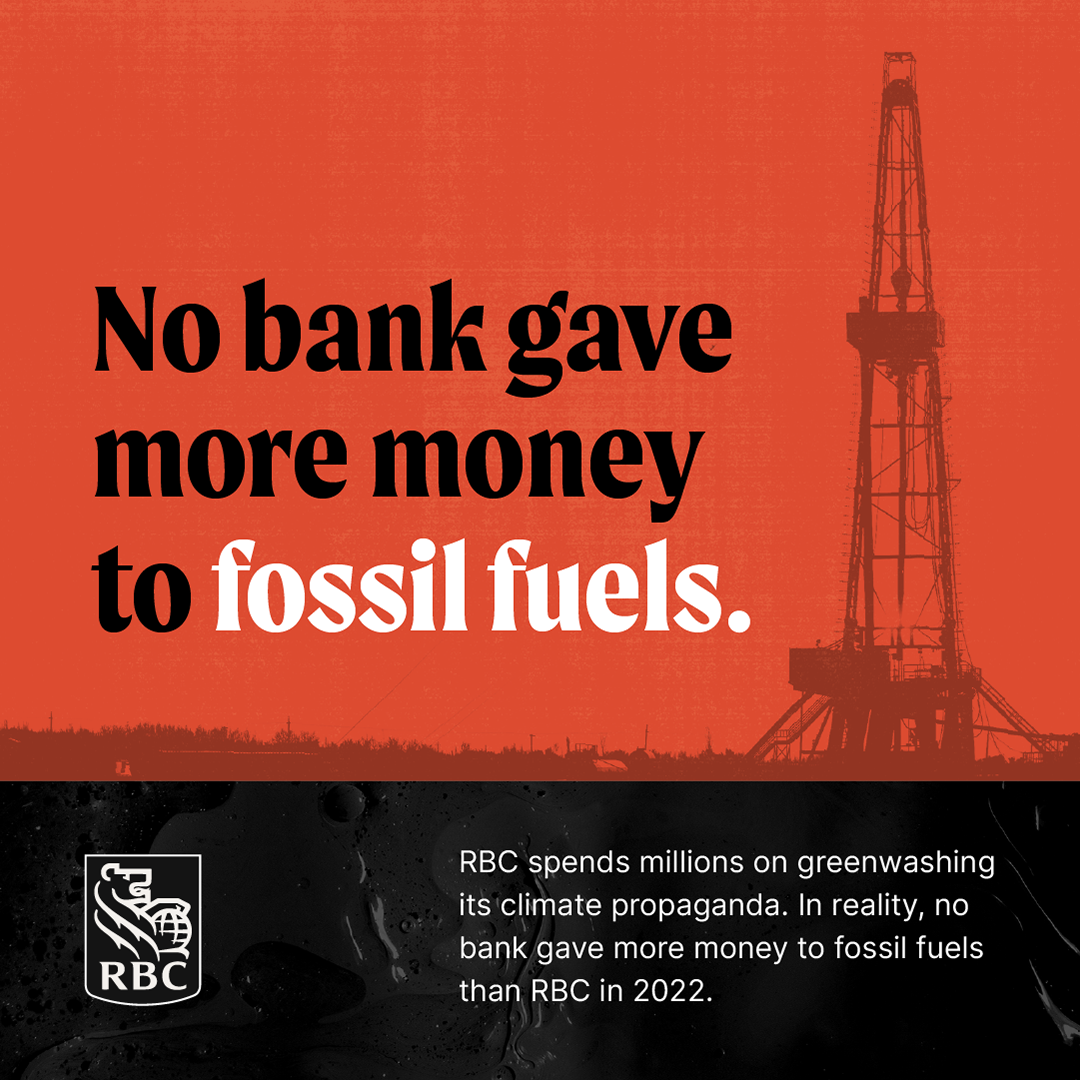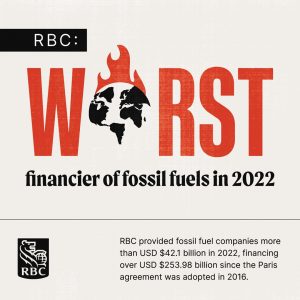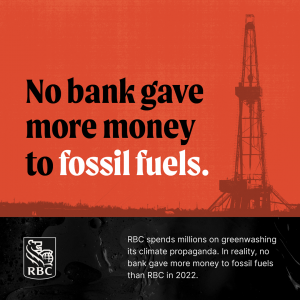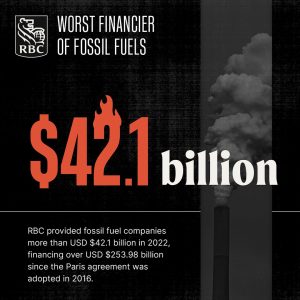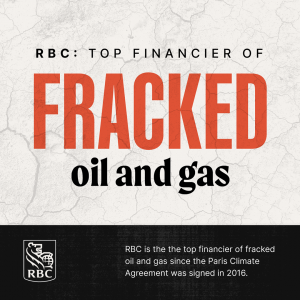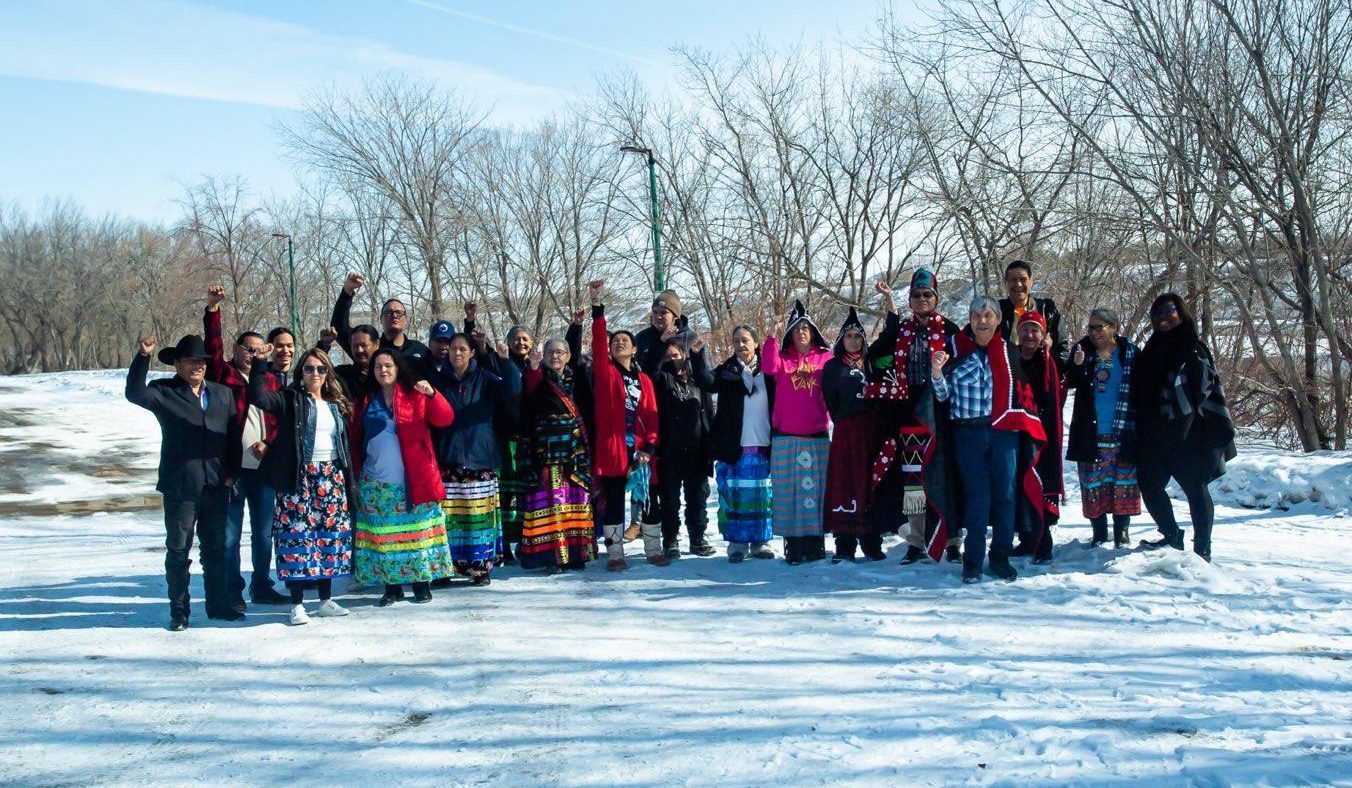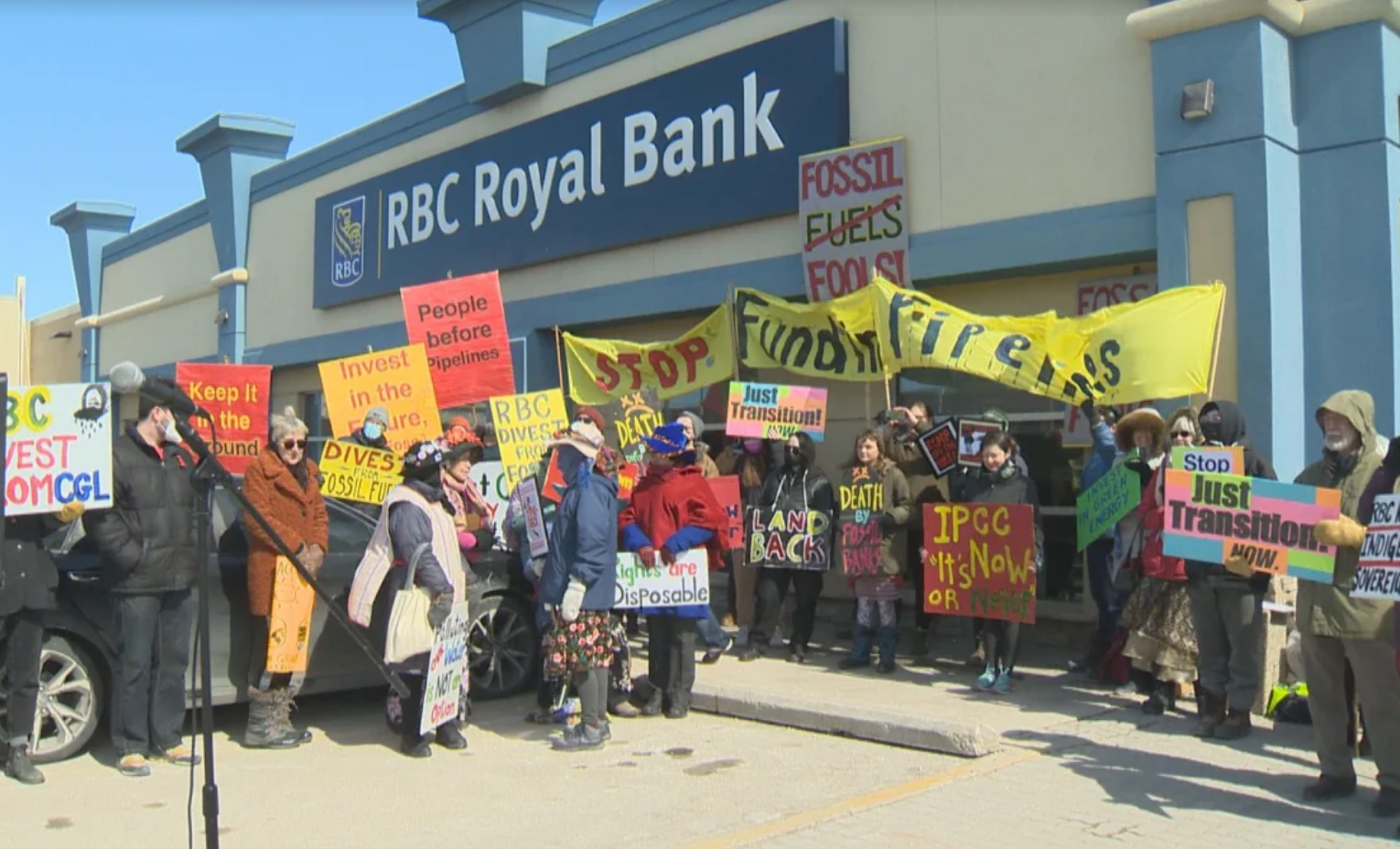What you accomplished – grassroots update
It’s been three weeks since the RBC AGM in Saskatoon and the national Fossil Fool’s Day mobilization the weekend prior. Here’s an update to all of our amazing grassroots leaders on what we’ve just pulled off.
We went from 8% of shareholder support to … 26%
At last year’s RBC AGM, a single resolution called for the bank to clarify its definition of sustainable finance. It got 8% of the vote.
But this year, a resolution calling for RBC to respect the right to free, prior, and informed consent garnered 26% of support.
A resolution calling for RBC to implement real emissions reductions targets achieved 16% support; and calls to stop fossil fuel expansion achieved 6.5%.
In terms of shareholder votes at an AGM, anything approaching 20% is considered a “controversial result, because over 90% of shareholders usually toe the company line.” We did that – our actions over the last year nearly tripled opposition within RBC’s shareholder base. And that’s not all…
Millions of Canadians were exposed to national media reports about RBC’s record for five days straight
When we started on this campaign, the dominant view was that Canadian media would not cover national mobilizations.
Amazingly, on Saturday April 1, “Fossil Fool’s Day” was plastered across TV screens. We scored hundreds of media hits across this country, including amazing local ones, even landing an 8pm interview for the amazing Wet’suwet’en leader Eve Saint on CTV National News!
The following day, the Canadian Press released an article with the headline reading that banks were under pressure from shareholders. And things were only beginning.
Then on the Monday, as our delegation arrived in Saskatoon, Grand Chief Stewart Phillips published an op-ed in the Toronto Star inciting banks to respect FPIC. Then, on Tuesday, Global News disclosed how RBC had arranged ‘sustainable’ funding for a notorious German coal company! On the day of, Grand Chief Stewart Philips appeared on two national shows, Power Play and Power & Politics. Even a rightwing columnist couldn’t help but to tell our side of the story…
The other side’s ugly side
But there is more to the Saskatoon RBC AGM story than media or investor turnout. Here, the story forks and splits between beauty and ugliness.
This video by Dayna Reggero shows solidarity, emotion, a gathering of many incredible Indigenous and BIPOC leaders convening to take part in ceremony, discuss land, and financing of land theft.
This video by World Change Media captures callous, racist, and unprofessional behaviour by RBC who segregated Indigenous and BIPOC delegation to another room.
RBC’s behaviour, RCMP presence and snipers on the roof, the vile attacks on Wet’suwet’en governance had a profound and difficult impact on Land Defenders and ourselves.
We rise above it. On his way home, Chief Na’Moks wrote us the following message to be shared:
Even with the violent, racist acts and threats of RBC and RCMP, our dignity, as a whole, was maintained and apparent to the world … Please do share with all our friends and allies how very proud and honoured I am to stand with you all, all should take time for self care, it is so very unfortunate that all had experience parts of what the Wet’suwet’en experience on a daily basis, I wish it weren’t that way.
Love and respect to you all!

